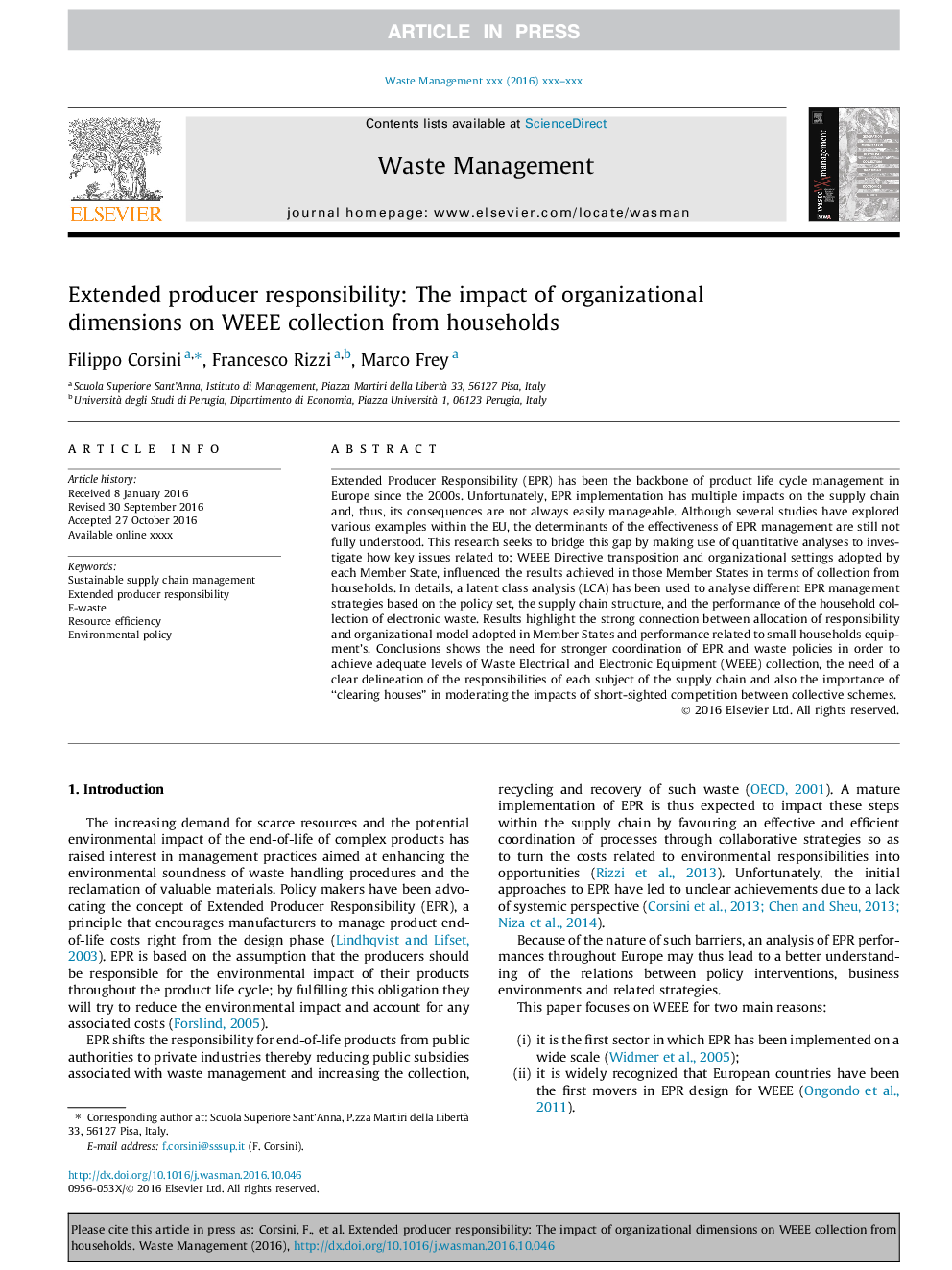| Article ID | Journal | Published Year | Pages | File Type |
|---|---|---|---|---|
| 5757007 | Waste Management | 2017 | 7 Pages |
Abstract
Extended Producer Responsibility (EPR) has been the backbone of product life cycle management in Europe since the 2000s. Unfortunately, EPR implementation has multiple impacts on the supply chain and, thus, its consequences are not always easily manageable. Although several studies have explored various examples within the EU, the determinants of the effectiveness of EPR management are still not fully understood. This research seeks to bridge this gap by making use of quantitative analyses to investigate how key issues related to: WEEE Directive transposition and organizational settings adopted by each Member State, influenced the results achieved in those Member States in terms of collection from households. In details, a latent class analysis (LCA) has been used to analyse different EPR management strategies based on the policy set, the supply chain structure, and the performance of the household collection of electronic waste. Results highlight the strong connection between allocation of responsibility and organizational model adopted in Member States and performance related to small households equipment's. Conclusions shows the need for stronger coordination of EPR and waste policies in order to achieve adequate levels of Waste Electrical and Electronic Equipment (WEEE) collection, the need of a clear delineation of the responsibilities of each subject of the supply chain and also the importance of “clearing houses” in moderating the impacts of short-sighted competition between collective schemes.
Keywords
Related Topics
Physical Sciences and Engineering
Earth and Planetary Sciences
Geotechnical Engineering and Engineering Geology
Authors
Filippo Corsini, Francesco Rizzi, Marco Frey,
